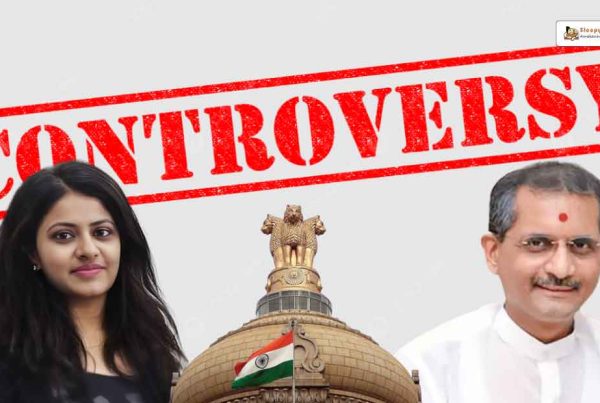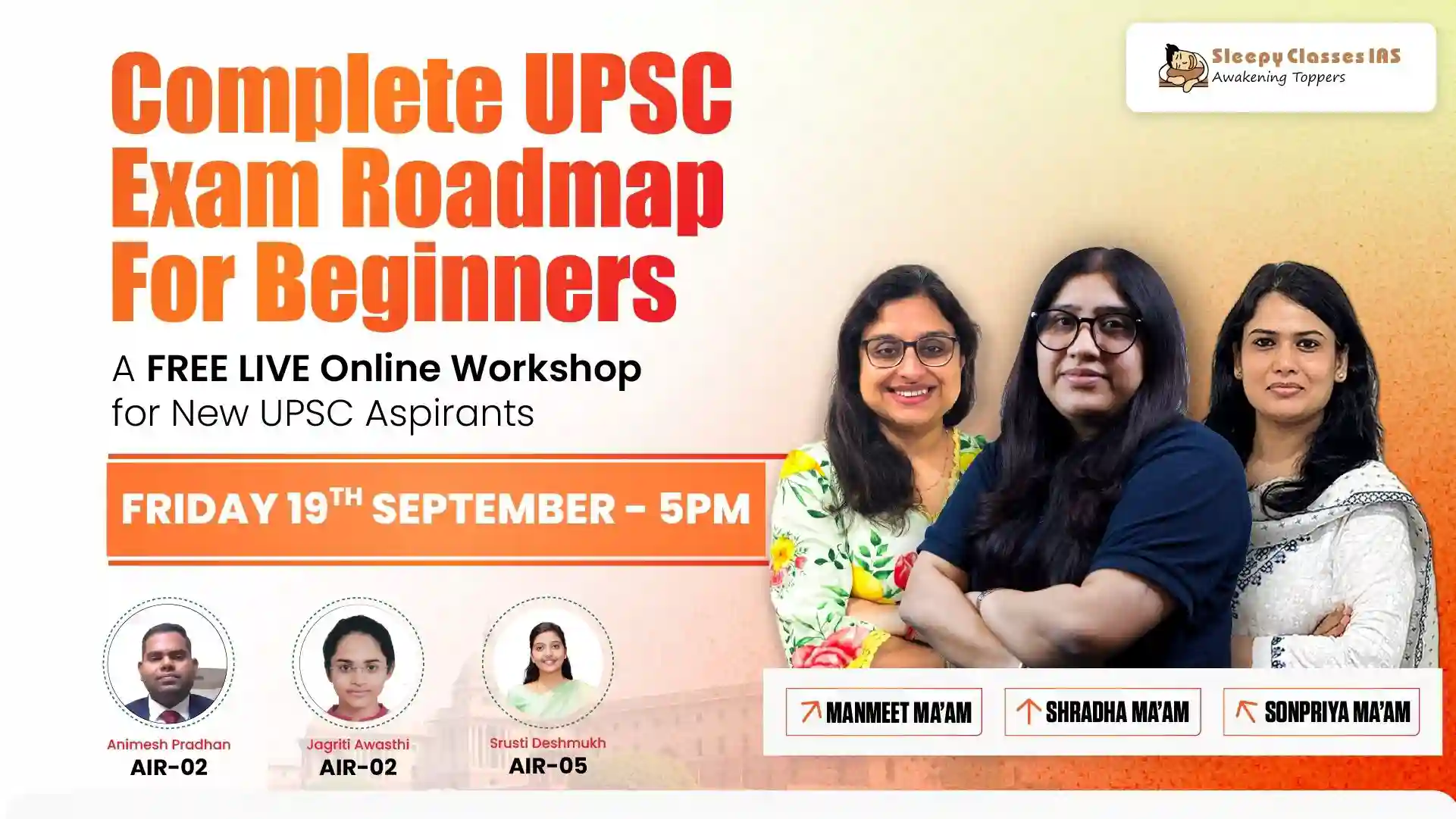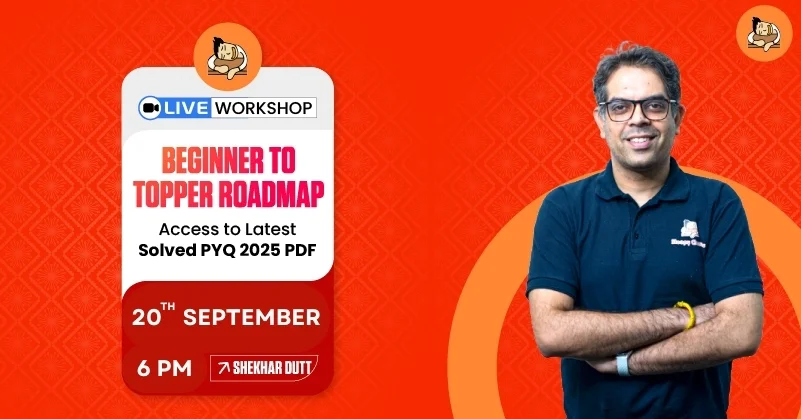The UPSC exam is one of the most prestigious exams in India, attracting thousands of aspirants each year. Many candidates often wonder about the minimum graduation percentage required to appear for this exam. This article aims to clear up any confusion and provide a detailed overview of the educational qualifications needed for UPSC aspirants.
Key Takeaways
- No specific percentage is required in graduation to be eligible for the UPSC exam.
- Candidates must have a graduation degree from a recognized university.
- A good academic record can positively influence overall performance but is not mandatory.
- The UPSC exam focuses more on the preliminary and mains exam scores than graduation marks.
- Comprehensive preparation for all stages of the UPSC exam is crucial for success.
Understanding the UPSC Exam Requirements
Overview of UPSC Exam
The UPSC exam is one of the most challenging exams in India. It is conducted by the Union Public Service Commission to recruit candidates for various civil services. The exam is held annually and consists of three stages: Preliminary, Mains, and Personality Test.
Eligibility Criteria
To sit for the UPSC exam, candidates must meet certain eligibility criteria. These include nationality, age limit, and educational qualifications. For instance, candidates must be Indian citizens and aged between 21 and 32 years. They also need a graduation degree from a recognized university.
Importance of Graduation Degree
A graduation degree is crucial for UPSC aspirants. It not only fulfills the eligibility criteria but also provides a strong foundation for the exam. Many subjects in the UPSC syllabus are covered during graduation, making it easier for candidates to prepare. Having a degree also shows a candidate’s dedication and ability to complete long-term goals.
Understanding the eligibility criteria is the first step in your UPSC journey. It ensures you are well-prepared and meet all the requirements before applying.
Educational Qualifications for UPSC Aspirants
To appear for the UPSC exam, candidates must have a graduation degree. This degree should be from a university recognized by the government or an equivalent qualification. Candidates in their final year of graduation can also apply for the preliminary exam, but they must show proof of passing the exam when applying for the main exam.
Minimum Graduation Percentage: Myths and Facts
Common Misconceptions
Many believe that a high percentage in graduation is necessary to appear for the UPSC exam. However, this is not true. The minimum eligibility for taking up the civil service examination is simply passing graduation. So, the message is loud and clear: your 12th class percentage does not matter much.
Official Guidelines
The UPSC does not specify any minimum percentage requirement for the graduation degree. As long as you have completed your graduation from a recognized university, you are eligible to appear for the exam. This means there is no fixed percentage that candidates need to achieve in their undergraduate studies.
Impact on Eligibility
While there is no specific percentage required, having a good academic record can positively influence your overall performance. The marks obtained in the graduation degree are considered during the calculation of the final merit list. Therefore, a good academic record can positively impact the overall performance in the UPSC exam.
To summarize, there is no specific percentage required for the graduation degree to appear for the UPSC exam. However, a good academic record can positively influence the overall performance. While the graduation marks are considered, they hold relatively less weightage compared to the marks obtained in the preliminary and mains examinations. Hence, candidates should focus on comprehensive preparation for all stages of the UPSC exam to increase their chances of success.
Importance of Graduation Degree in UPSC Selection
Merit-Based Selection
The UPSC exam is highly competitive, and selection is based on merit. While there is no specific percentage requirement for graduation, having a strong academic record can be beneficial. A good academic record can positively impact your overall performance in the UPSC exam.
Role in Final Merit List
The marks obtained in your graduation degree are considered when calculating the final merit list. However, the weightage given to graduation marks is relatively low compared to the marks obtained in the preliminary and mains examinations. The final merit list combines scores from the preliminary exam, mains exam, and the interview stage.
Academic Record Influence
Although the graduation marks hold less weightage, they still play a role in the overall selection process. A solid academic background can help you understand and cover the syllabus more effectively. Therefore, it’s important to focus on your studies and aim for a good academic record during your graduation.
The best graduation degree for UPSC is one that covers the syllabus and has a good success rate. This can help you in your preparation and increase your chances of success.
Comparing UPSC with Other Competitive Exams
The UPSC Civil Service examination is one of the most reputed and popular exams held in the country. As the factor of prestige is attached to the exam, lakhs of aspirants prepare for the exam with a dream of becoming a civil servant. But as the famous quote goes “To achieve great things, you must deserve before you desire”, and the truth of this statement applies when preparing for an exam like UPSC CSE.
Strategies for UPSC Preparation
Comprehensive Study Plan
Creating a detailed study plan is essential for UPSC preparation. Break down the syllabus into manageable sections and allocate specific time slots for each subject. Consistency is key, so make sure to stick to your schedule.
Importance of Coaching
While self-study is important, coaching can provide structured guidance and expert insights. Many successful candidates have benefited from coaching institutes that offer specialized courses and mock tests.
Self-Preparation Tips
For those who prefer self-study, here are some tips:
- Use NCERT textbooks for a strong foundation.
- Regularly read newspapers and follow current affairs.
- Practice previous years’ question papers.
- Join online forums and study groups for peer support.
Remember, do not panic about the nearing of the UPSC prelims exam. Do meditation for a minimum of 10 minutes every day. Always be in a relaxed mood and think positively.
By following these strategies, you can enhance your chances of success in the UPSC exam.
Role of Optional Subjects in UPSC
Choosing the Right Optional
Selecting an optional subject is a crucial decision for UPSC aspirants. The choice can significantly affect a candidate’s performance and overall success in the exam. With a list of 48 optional subjects, it’s important to choose one that aligns with your interests and strengths. A well-chosen optional can boost your score and make a difference in the final ranking.
Popular Optional Subjects
Some optional subjects are more popular among candidates due to their scoring potential and overlap with the General Studies syllabus. These include:
- Sociology
- Geography
- Public Administration
- History
- Political Science & International Relations
These subjects have consistently produced top rankers in the UPSC exams.
Impact on Final Score
The optional subject carries significant weight in the UPSC Mains exam. It consists of two papers, each worth 250 marks, making a total of 500 marks. This can greatly influence your final score and ranking. Therefore, it’s essential to choose an optional subject wisely and prepare thoroughly.
The selection of an optional subject is an important decision as it can impact a candidate’s performance and overall success in the UPSC exam.
UPSC Exam Stages and Their Significance
The UPSC exam pattern comprises multiple stages, culminating in the selection of candidates for various civil services roles. This pattern includes the Prelims, Mains, and Personality Test. Each stage has its own importance and requires a different preparation strategy.
Preliminary Exam
The Preliminary Exam, often called Prelims, is the first stage of the UPSC exam. It consists of two papers: General Studies and CSAT. Both papers are objective type and serve as a screening test. Only those who clear the Prelims can move on to the next stage.
Mains Exam
The Mains Exam is the second stage and is more detailed. It includes nine papers, out of which seven are counted for ranking. These papers are descriptive and test the candidate’s in-depth knowledge. The Mains Exam is crucial as it carries significant weight in the final merit list.
Personality Test
The final stage is the Personality Test, also known as the Interview. This stage assesses the candidate’s personality, communication skills, and overall suitability for a career in civil services. The interview panel includes experts who evaluate the candidate’s responses to various questions.
Understanding the significance of each stage helps in planning a focused preparation strategy. Each stage is designed to test different skills and knowledge areas, making the UPSC exam a comprehensive evaluation process.
Common Challenges Faced by UPSC Aspirants
Time Management
Managing time effectively is one of the biggest challenges for UPSC aspirants. With a vast syllabus to cover, students often struggle to allocate sufficient time to each subject. Creating a balanced study schedule is crucial to ensure that all topics are covered adequately.
Stress and Anxiety
The pressure to succeed in the UPSC exam can lead to significant stress and anxiety. Aspirants invest significant time, effort, and sometimes financial resources in UPSC preparation. It’s important to find ways to manage stress, such as through regular exercise, meditation, or hobbies.
Balancing Work and Study
Many UPSC aspirants are also working professionals. Balancing a full-time job with the demands of UPSC preparation can be extremely challenging. Effective time management and a well-structured study plan can help in managing both responsibilities.
Fear of failure and self-doubt are common among UPSC aspirants. It’s essential to stay positive and focused on your goals.
Resources for UPSC Preparation
Preparing for the UPSC exam requires a variety of resources to cover all aspects of the syllabus. Here are some essential resources to help you get started.
Success Stories of UPSC Toppers
Inspirational Journeys
Learn through the transformative journeys of UPSC aspirants from diverse backgrounds, overcoming challenges to achieve success. These stories show how determination and hard work can lead to remarkable achievements.
Study Techniques
Toppers often share their unique study techniques that helped them succeed. Some focus on making detailed notes, while others prefer group studies or online resources. Finding the right method can make a big difference in your preparation.
Overcoming Obstacles
Every aspirant faces obstacles, but what sets toppers apart is their ability to overcome them. Whether it’s managing time, dealing with stress, or balancing work and study, their experiences offer valuable lessons for all aspirants.
Adopt valuable lessons from the experiences of those who have successfully navigated the UPSC journey. Their stories can inspire and guide you on your own path to success.
Meet the inspiring success stories of UPSC toppers who have achieved their dreams with our help. These stories are a testament to the effectiveness of our courses and the dedication of our students. Ready to start your own success story? Visit our website and explore the courses that can help you achieve your goals.
Conclusion
In conclusion, there is no specific minimum percentage required in your graduation to appear for the UPSC exam. The key requirement is to have a bachelor’s degree from a recognized university. While your graduation marks do not play a significant role in the selection process, having a solid academic background can be beneficial. Therefore, focus on thorough preparation for all stages of the UPSC exam to enhance your chances of success. Remember, dedication and consistent effort are crucial in achieving your goal of becoming a civil servant.
Frequently Asked Questions
What is the minimum percentage required in graduation to appear for the UPSC exam?
There is no minimum percentage required in graduation to appear for the UPSC exam. You just need to have a graduation degree from a recognized university.
Can final-year students apply for the UPSC exam?
Yes, students in their final year of graduation can apply for the UPSC exam. However, they must present proof of passing the degree during the main examination.
Does a higher graduation percentage improve my chances in the UPSC exam?
While a higher graduation percentage does not directly impact your eligibility, a good academic record can be beneficial during the interview stage.
Is coaching necessary for UPSC preparation?
Coaching is not mandatory for UPSC preparation. Many candidates clear the exam through self-study and using online resources. It depends on your personal study style and needs.
What are the stages of the UPSC exam?
The UPSC exam has three stages: Preliminary Exam, Mains Exam, and Personality Test (Interview). Each stage must be cleared to move on to the next.
How important is the graduation degree in the final merit list of the UPSC exam?
The graduation degree itself is not scored in the final merit list. The merit list is based on marks obtained in the Mains Exam and the Personality Test.
Can I choose any subject as my optional for the UPSC exam?
Yes, you can choose any subject as your optional for the UPSC exam, but it should be one of the subjects listed by UPSC.
How many attempts can I make for the UPSC exam?
General category candidates can attempt the UPSC exam six times. There are relaxations in the number of attempts for OBC, SC, and ST candidates.





